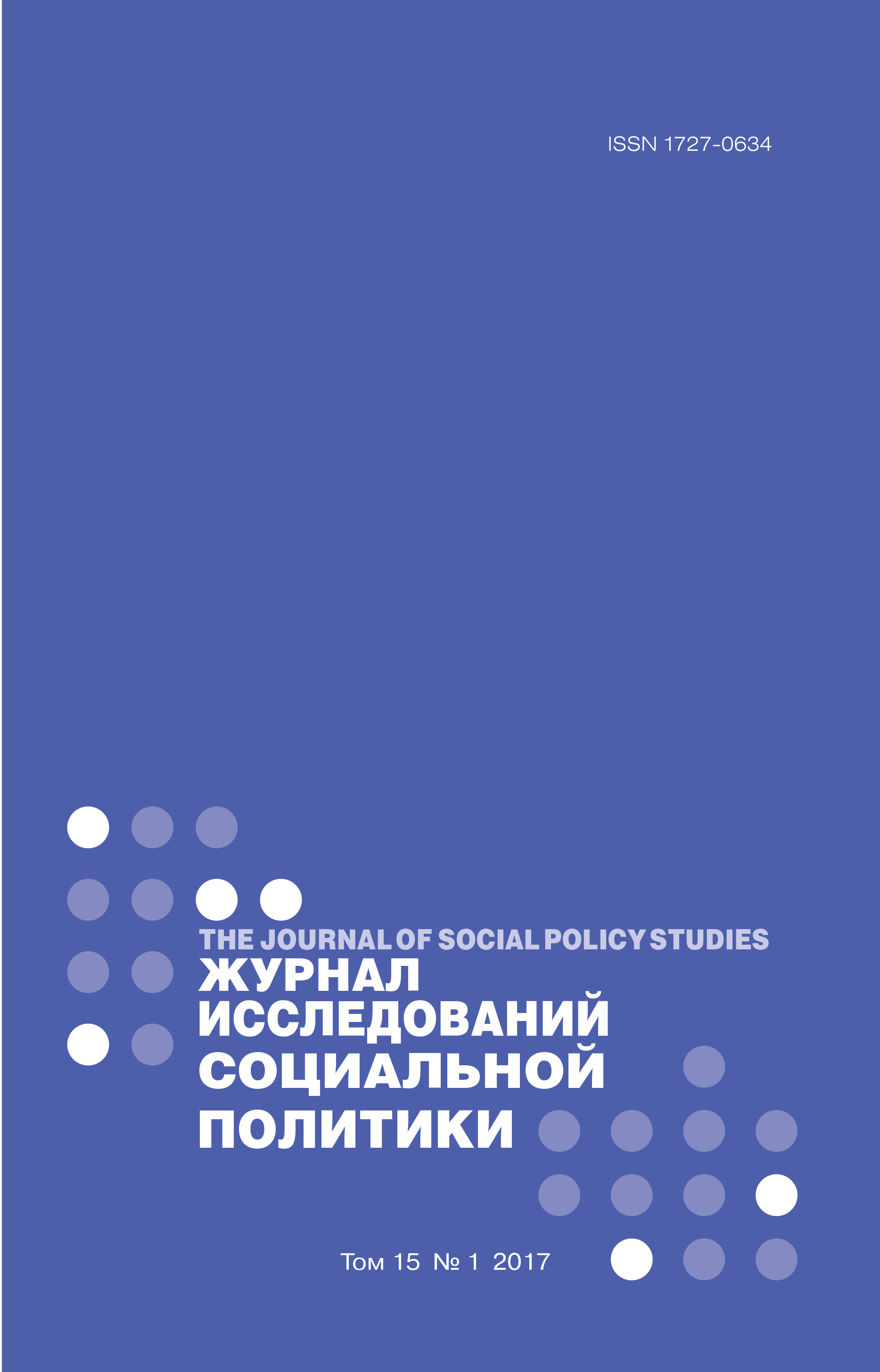The Methodical Audit of Independent Quality Evaluation in Social Sphere: Possibilities and Limitations
Abstract
The independent evaluation of quality (IEQ) in welfare organizations is relatively new tool in public administration, which has acquired institutional and legislatively regulated characteristics in recent years (2013–2015). A review of how such evaluation are defined is presented, as in this context that the scope and limitations of IEQ are fixed. Firstly, IEQ produces an evaluation of the conditions and resources behind social programs, rather than considering their products, effects or impact. Secondly, the indicators and criteria used for evaluation are determined in advance and legally regulated. Finally, IEQ is focused on providing a summative rating of organizations or, in other words, employing a linear model of measurement of institutional activity. To overcome these constraints, the inclusion of additional data collection methods could be implemented to gain a more holistic evaluation of the conditions and resources of the organization. This article explores the methodical audit of IEQ; this entails looking at the relevance of chosen techniques of data gathering and the construction of rating scales. The empirical basis of this paper emerges from the application of IEQ methodology to rate twenty-eight Moscow-based centres that provide social assistance to families and children. The use of a mixed methods research (MMR) and, in particular, the design of additional covering allowed diverse data to be gathered; the process of comparing and integrating this data was described in detail method by methods. Presented here are examples of how to combine standardized and participative observation, visual data and field notes, formalized survey and ‘interviews with interviewers’. The indicators and scales for rating constrictions and their interpretation are discussed in the second part of article. The need for normalization and weighting among chosen indicators is also debated. In conclusion, the main findings on the public role of IEQ are summarized, as well as its importance for changes to management within welfare organizations, public administration in a whole, and social service beneficiaries.















